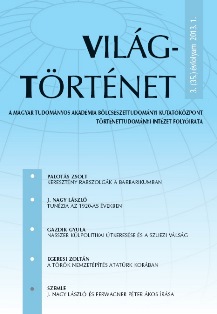Keresztény rabszolgák a Barbarikumban. Források a muzulmán kalózkodás 16–18. századi történetéből
Christian Slaves in Barbaricum. Sources on the History of the Muslim Piracy in the 16th–18th Centuries
Author(s): Zsolt PalotásSubject(s): History
Published by: Magyar Tudományos Akadémia Bölcsészettudományi Kutatóközpont Történettudományi Intézet
Summary/Abstract: During the 16–18th century a significant number of Christians lived in North Africa, either voluntarily or forcibly. The study examines one aspect of the history of the Early Modern Mediterranean, mainly through Christian primary sources and secondary literature. The 17th century was the golden age of piracy, not only in the New World, but also in Europe. The Christian world was well linked to the Islamic one thanks to the corsairs of the Regency of Algiers, Tunis, Tripoli and the Kingdom of Morocco. Some Christian sources, such as the accounts of the former slaves (Diego de Haëdo, Cervantes), or the writings of the Trinitarians (Pierre Dan) – showed a negative picture of these territories and villages. This was due to the fact that Christians had been held as slaves there. The official government reports written by consuls (Thomas Baker) and ambassadors (Laurent D’Arvieux) were characterized by a certain level of impartiality because they tried to protect the interest of their kingdom.
Journal: Világtörténet
- Issue Year: 2013
- Issue No: 1
- Page Range: 1-18
- Page Count: 18
- Language: Hungarian

